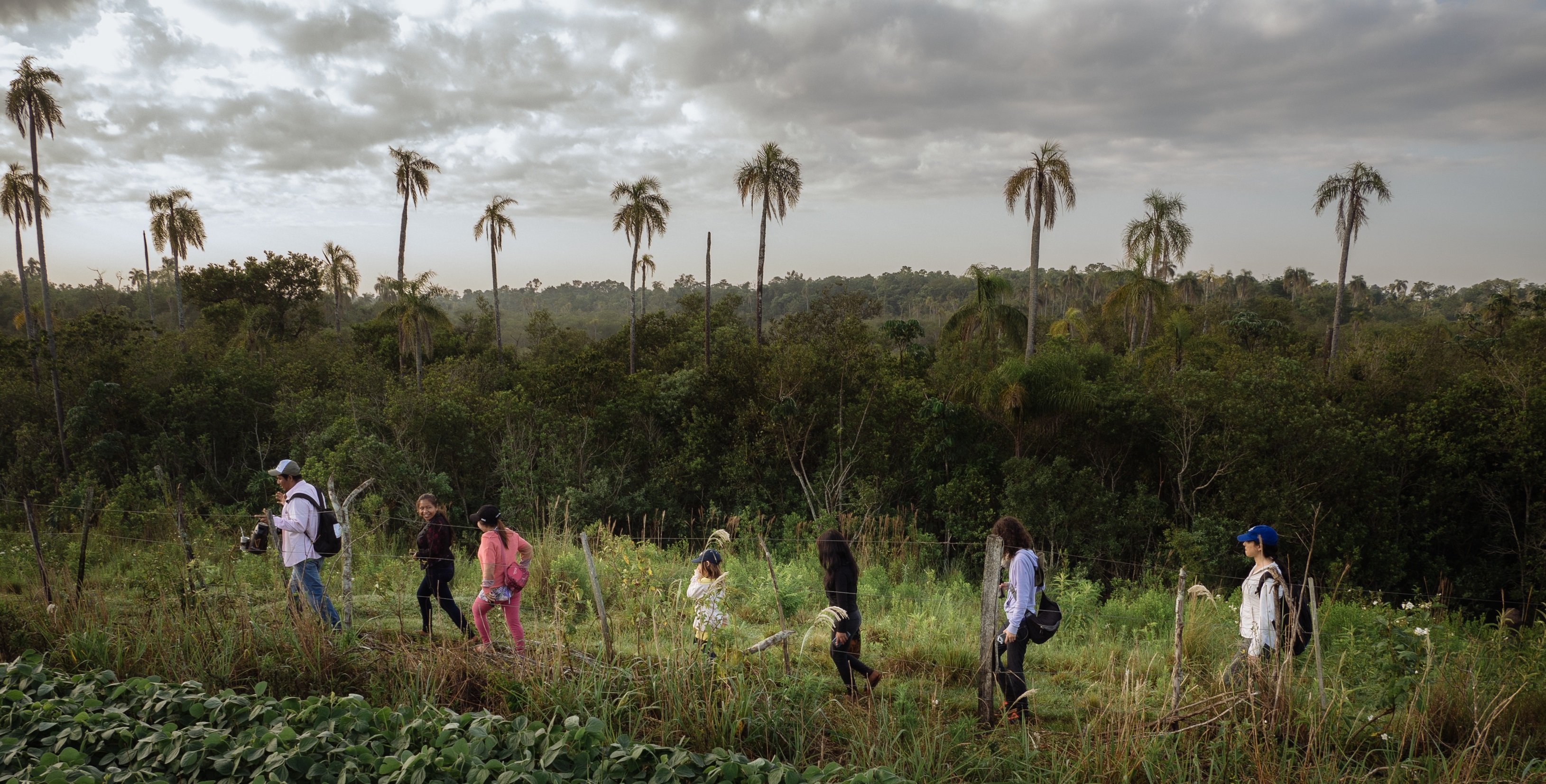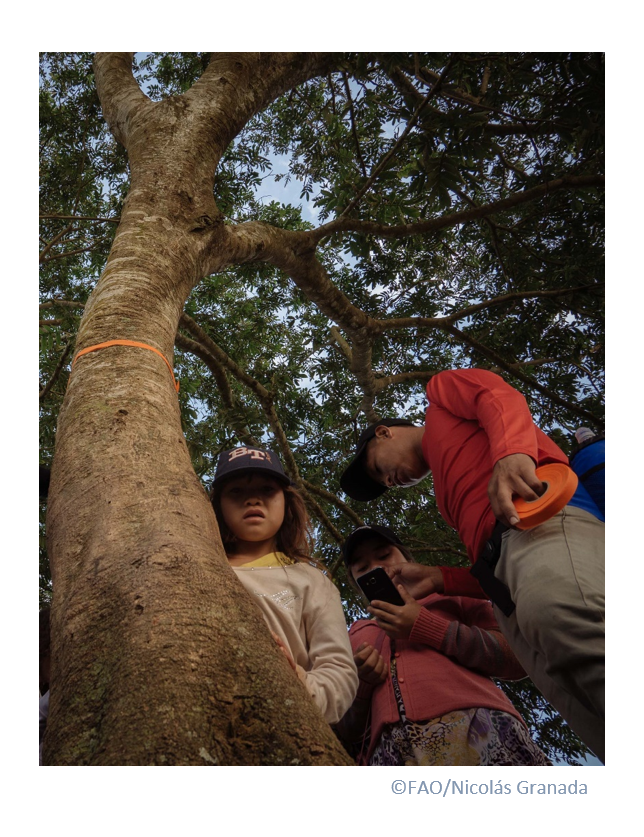Planting trees for the future, new Green Climate Fund project in Paraguay

An innovative project in Paraguay is using cash incentives to promote reforestation and forest conservation in some of the country’s poorest and most vulnerable rural communities.
The Poverty, Reforestation, Energy and Climate Change Project, or PROEZA, was developed by FAO and the Government of Paraguay and approved earlier this year by the Green Climate Fund (GCF) – FAO’s first successful submission to the Fund.
The USD 90 million project – USD 25 million from a GCF grant and USD 65.2 million from Government co-financing – will run for five years and reach around 17,000 rural families in eastern Paraguay, in an area roughly one-third the size of Italy.
Hans Thiel, an FAO investment support officer who coordinated the project’s design, explained that the team mapped both climate vulnerability and poverty to identify the families.
“PROEZA is really reaching the most socially and environmentally vulnerable people in Paraguay, many from indigenous communities and families headed by women. It’s quite comprehensive, with a very strong focus on poverty alleviation, gender, climate resilience, sustainability, land access and titling,” he said.
“It’s a big step forward for Paraguay in its national strategy to combat poverty, and it hits 100 percent into FAO’s strategic objectives and vision of zero poverty and hunger,” he added.
Building resilience
In the project area, most families with school-aged children receive monthly conditional cash payments, linked mainly to education and healthcare, through the public social protection programme Tekoporã.
 These families also rely heavily on the natural environment for their daily domestic needs – wells and rainfall for their water, fuelwood and charcoal to cook their food, usually over an open fire.
These families also rely heavily on the natural environment for their daily domestic needs – wells and rainfall for their water, fuelwood and charcoal to cook their food, usually over an open fire.
Through PROEZA, they will receive technical training and financial support to plant a mix of native and fast-growing trees on their land.
These ‘close to nature planted forests’ and climate-smart agroforestry systems offer multiple benefits – from providing families with a sustainable source of firewood and valuable timber and non-timber forest products for income, to preventing soil erosion and regulating the water cycle.
If at the end of a given year the properties have been well-managed and maintained – based on plant survival rates, species mix, pruning, etc. – the families will receive an environmental conditional cash transfer.
The project will also introduce energy saving cook stoves to help families reduce their fuelwood consumption and carbon footprint.
Ensuring sustainability
Through PROEZA, the Government of Paraguay will offer incentives to medium-sized land owners to adopt certified new generation forest plantations for bioenergy, timber and agroforesty and livestock production. These plantations will include areas of restored natural forests designed to protect watersheds, riverbank and wetland zones and biodiversity corridors.
Strengthening the institutional capacities of forest, land use, environment and energy regulating entities is another important part of PROEZA – a move that will help ensure sustainability once the project ends.
The line agencies responsible for agriculture, forestry, social protection, indigenous people, the environment and energy have agreed to a joint governance structure to ensure inter-sectoral coordination, swift action and transparency throughout the project.
Flagship project
PROEZA was the result of two years of close and fruitful collaboration between the FAO Investment Centre, FAO Regional Office for Latin America and the Caribbean (RLC) and FAO Representation in Paraguay, said Thiel.
“This was a very steep learning curve for us because GCF is a new donor for FAO, and the GCF itself is very new. Developing the funding proposal was a complex process, but we learned a lot, especially in terms of internal checks and quality enhancement,” he said.
Jorge Meza, a senior forestry officer in FAO RLC and coordinator of the regional initiative on the sustainable use of natural resources, disaster risk management and adaptation to climate change, has been involved with PROEZA from the beginning.
“As a flagship project, PROEZA has given us at FAO the confidence that it’s possible to mobilize international resources for large projects that tackle the intersection of climate change, hunger and poverty,” he said
An area, Thiel added, “where the international community needs to sharpen its focus in the years ahead.”
